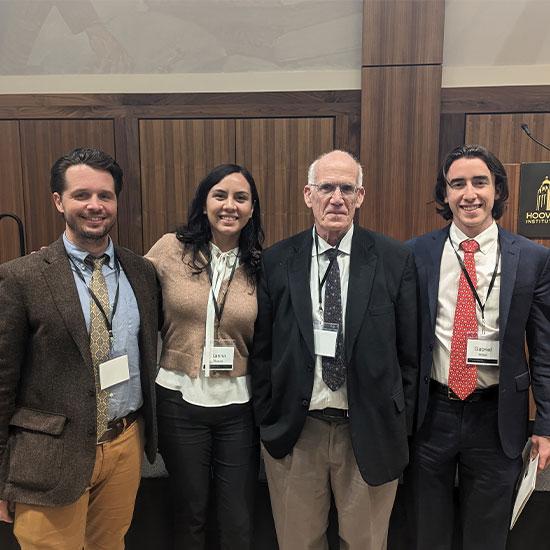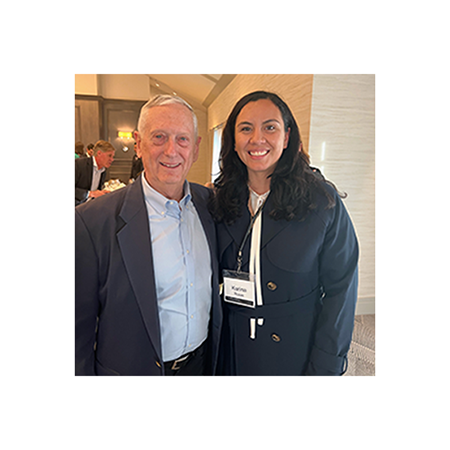SPP Faculty and Students Join the Military History in Contemporary Conflict Working Group

Founded by SPP Giles O’Malley Distinguished Visiting Professor Victor Davis Hanson, the Military History in Contemporary Conflict Working Group at Hoover Institution
is a biannual gathering of military, academic, and political leaders that explore
how historical military operations influence current conflicts. Attendees of the March
17, 2023, event included Victor Davis Hanson, General Jim Mattis, 26th assistant to
the president for National Security Affairs and Davies Family Distinguished Fellow
at Hoover, General H. R. McMaster, 26th National Security Advisor and Fouad and Michelle
Ajami Senior Fellow at Hoover, among others. This off the record gathering gives participants
an opportunity to discuss everything from the Russia-Ukraine war and a China threat
to conditions at home and credibility abroad. The group's work is presented through
articles in Strategika, an online journal. 
Kiron Skinner, Taube Professor of International Relations and Politics, and Robert Kaufman, Robert and Katheryn Dockson Professor of Public Policy, are frequent participants of the working group and contributors to Strategika. Kaufman said the Military History in Contemporary Conflict Working Group represents “national security in the broadest and most vital sense where people of distinction in the academic and military policy world come to discuss contemporary and future issues in a historically informed and rigorous way.”
This year, Skinner made arrangements for three top students from her “America’s Role in the World: The Enduring Debate” course to attend, while also providing the opportunity for the rest of her classes to join online. Bradley Combest, Karina Rosas, and Gabriel Millar traveled to Stanford for the session. Rosas, a second-year student studying in the American Policy and Politics and International Relations and National Security specializations, stated, “This past Friday, I had the privilege of witnessing distinguished military scholars and historians examine and contend for America’s role in ongoing and future conflicts. I learned how important it is to have knowledge of past military operations and how it can inform contemporary policy decisions. At times, panel members intensely engaged with one another on ongoing national security issues, but there was consensus in the analysis and history of war. This opportunity has enriched and raised the bar in my academic journey. I left inspired but, most importantly, challenged in recognition that it is up to our generation to address complex issues with the same intellectual rigor. Finally, I thank Dean Peterson and my professors for making this experience possible. Students can trust that they are being prepared to answer today’s and tomorrow’s national policy issues.”